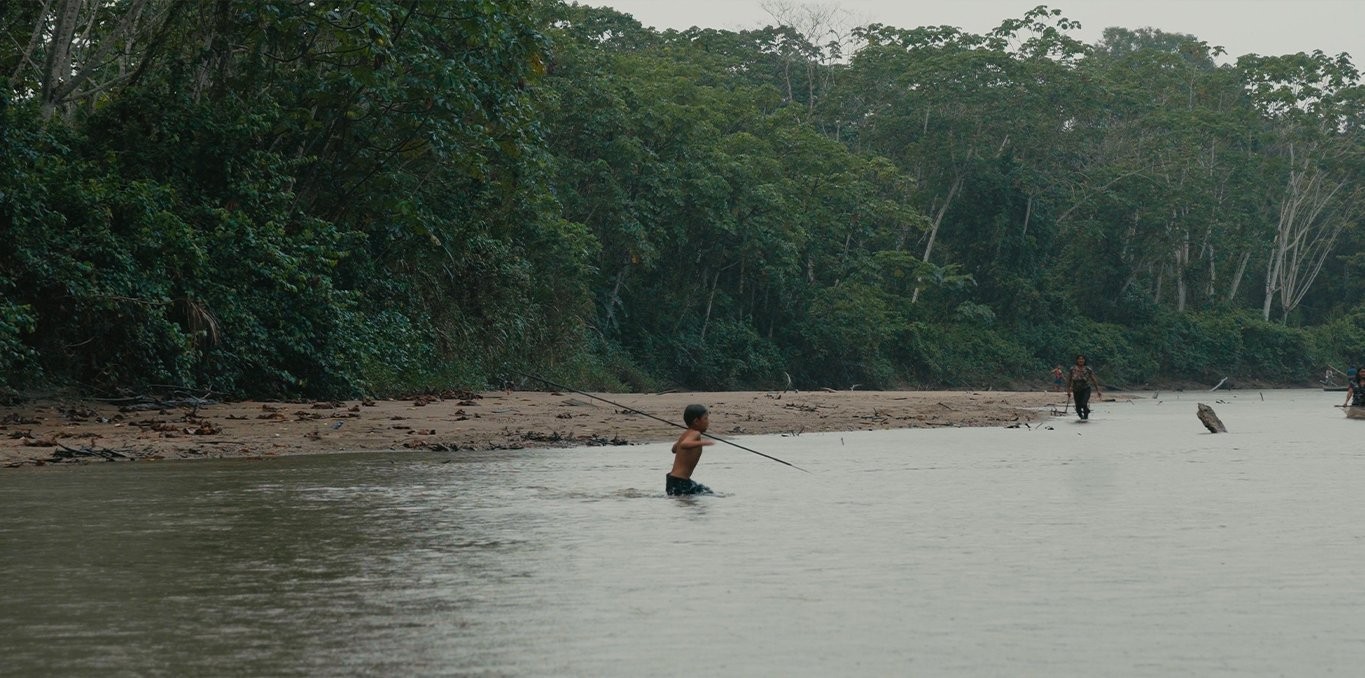Toroboro: The Name of the Plants

Twenty-five years after a renowned ethno-botanical study in the Ecuadorian Amazon region inhabited by the Waorani, the central figures involved reunite. Members of the community talk about the genocidal colonization of their people since the arrival of Christian missionaries. The main threats to their survival are now the oil and timber industries.
| Director | Manolo Sarmiento |
| Share on |
The final scene of this film moved me profoundly. But before I speak about it…
This film reminds me of the weight of the culture that shaped me, a culture that deeply instilled a way of keeping the world at a distance, of observing it more than inhabiting it. In the Waorani community of Quehueiri-Ono in Ecuador, the relationships between humans and plants reveal the extent of modern disconnection—disconnection that makes it possible to destroy the world in the name of development. The Waorani give names to plants because they exist. It is natural to recognize them not as objects but as subjects. They coexist, meet, and hold hands.
And then… that final scene, with a man over a hundred years old holding the scientist’s hand without ever letting go, reciting the names of plants we do not know, becomes a powerful metaphor: an urgent call to sensitivity, to the recognition of living beings we fail to perceive, and to the act of transmission. Between ancestral and scientific knowledge, between moderns and indigenous communities, between them and us.
Toroboro: The Name of the Plants confronts us with our own failure toward the living world, with hands too often closed to the shared existence of all the beings that inhabit it.
Sylvie Lapointe
Filmmaker

-

Français
1h44
Language: Français
Subtitles: Français -

English
1h44
Language: English
Subtitles: English
- Année 2024
- Pays Brazil
- Durée 104
- Producteur La Maquinita
- Langue Spanish, Wao Tededo
- Sous-titres French, English
- Résumé court Twenty-five years after a renowned ethno-botanical study in the Ecuadorian Amazon region inhabited by the Waorani, the central figures involved reunite.
- Ordre 2
- TLF_Applismb_CA 1
- Date édito CA 2025-11-14
The final scene of this film moved me profoundly. But before I speak about it…
This film reminds me of the weight of the culture that shaped me, a culture that deeply instilled a way of keeping the world at a distance, of observing it more than inhabiting it. In the Waorani community of Quehueiri-Ono in Ecuador, the relationships between humans and plants reveal the extent of modern disconnection—disconnection that makes it possible to destroy the world in the name of development. The Waorani give names to plants because they exist. It is natural to recognize them not as objects but as subjects. They coexist, meet, and hold hands.
And then… that final scene, with a man over a hundred years old holding the scientist’s hand without ever letting go, reciting the names of plants we do not know, becomes a powerful metaphor: an urgent call to sensitivity, to the recognition of living beings we fail to perceive, and to the act of transmission. Between ancestral and scientific knowledge, between moderns and indigenous communities, between them and us.
Toroboro: The Name of the Plants confronts us with our own failure toward the living world, with hands too often closed to the shared existence of all the beings that inhabit it.
Sylvie Lapointe
Filmmaker
-

Français
Duration: 1h44Language: Français
Subtitles: Français1h44 -

English
Duration: 1h44Language: English
Subtitles: English1h44
- Année 2024
- Pays Brazil
- Durée 104
- Producteur La Maquinita
- Langue Spanish, Wao Tededo
- Sous-titres French, English
- Résumé court Twenty-five years after a renowned ethno-botanical study in the Ecuadorian Amazon region inhabited by the Waorani, the central figures involved reunite.
- Ordre 2
- TLF_Applismb_CA 1
- Date édito CA 2025-11-14
